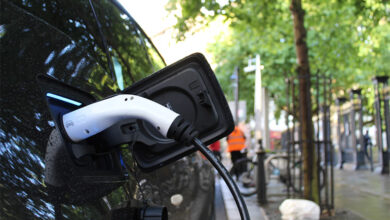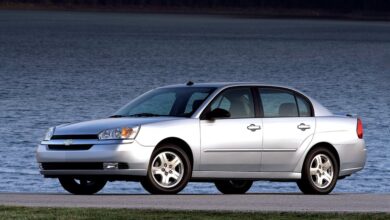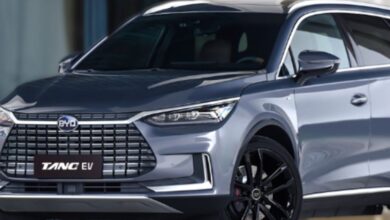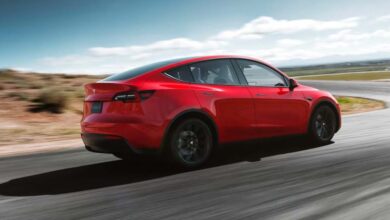The ground reality of EV charging stations in Delhi: Expectations vs experience vs reality – Electric Vehicles News
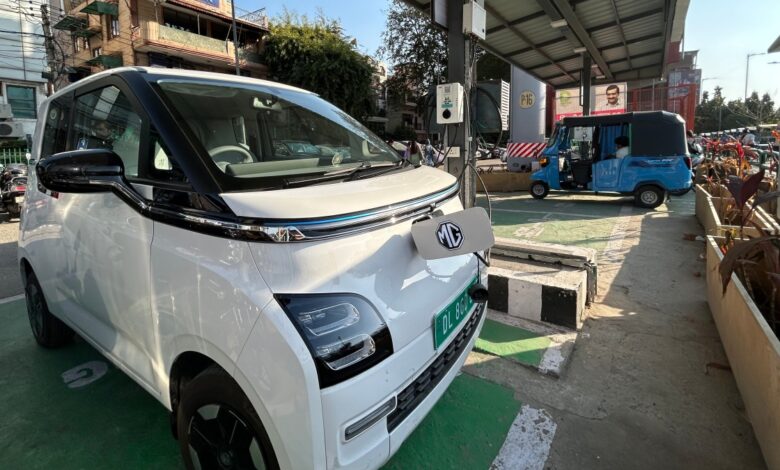
Delhi’s ambitious EV strategy, aimed at a cleaner and greener future, has raised hopes with the promise of widespread electric vehicle (EV) charging infrastructure.
By Sandhya Agrawal
The Delhi Cabinet recently approved an extension of the Electric Vehicle (EV
Switch Delhi is a campaign launched by the Government of the National Capital Territory of Delhi (GNCTD) in February 2021 to inform, promote, and encourage Delhi residents to transition from conventional to electric or battery-operated vehicles.
“The Delhi EV Policy commits to creating an enabling environment for the provision of private and public charging/swapping infrastructure through progressive incentives and policy provisions. In fact, Delhi has been on the forefront of taking cognisance to work towards accelerated deployment of charging infrastructure in the city,” says the Switch Delhi website.
Delhi’s ambitious EV strategy, aimed at a cleaner and greener future, has raised hopes with the promise of widespread electric vehicle (EV) charging infrastructure. The initiative aims to establish Delhi as a leading EV city, boosting environmental sustainability and lowering air pollution. However, the reality on the ground reveals both strides forward and obstacles to be addressed.
As per the Delhi EV Policy, which was extended now has been extended till June 2024, the Delhi government seeks to install 18,000 charging points by the deadline. In its Charging/Swapping Infrastructure Action Plan For Delhi 2022-25, the government has mentioned that it seeks to achieve 25% EV car
Currently, as per the Switch Delhi website, Delhi has 2,452 charging points in 1,919 places, demonstrating attempts to accommodate the increasing demand for EVs.
According to a Business Today report, the government’s strategy involves identifying locations in need of charging stations through its collaboration with MapmyIndia to create density-based heat maps based on new EV registrants’ residential pin codes. This data-driven plan aims to build charging infrastructure, both public and semi-public, at the neighbourhood level, involving Resident Welfare Associations (RWAs) and homeowners, the EV policy outlines.
Principal Secretary-cum-Commissioner (Transport) holding additional charge of Principal Secretary (I&FC) and Principal Secretary to Hon’ble Lt. Governor Delhi, Ashish Kundra, says, “In achieving the goal to turn 25% of vehicles in Delhi to EVs, the first goal is to get the public transport electric. Currently, there are 1,650 electric buses in Delhi and as we talk, contracts have already been signed to bring nearly 7,000 electric buses. With that, Delhi is poised to bag the second rank globally by the end of 2024 in EV adoption. The second prong is to turn electric cabs and auto
Despite these developments, consumers frequently report varied experiences about the state and performance of charging stations, pointing to maintenance and availability difficulties. The disparity between the policy’s claims of ‘creating an enabling environment for the provision of private and public charging/swapping infrastructure’ and the user experience emphasises the importance of continual development in service quality, accessibility, and dependability of the charging infrastructure. On social media platforms such as Instagram and YouTube, EV users frequently publish reality checks on the poor condition of these charging stations.
Santosh Tiwari, 41, a resident of Sangam Vihar who has been working as an auto-rickshaw driver since 2011, switched to Piaggio’s EV auto in 2022 in the hope of saving more.
He says, “I switched to electric auto in the hope that I would save on fuel costs, which I did. But, the problem is that this electric auto takes about three to four hours to charge completely, which means I can’t earn during that time. With CNG auto, I was earning 800-1000 per day; today, with electric auto, my earnings have remained the same while the inflation is constantly increasing.”
To analyse the condition of Delhi’s EV charging stations, the reporter visited Ramesh Parking Battery Smart at DSIDC, DDA Shade no.10, near the fish market
Vishal Aggarwal, 40, a resident of South East Delhi’s Sukhdev Vihar area who owns four cars, including one 2024 MG ZS EV Exclusive Pro, says, “I predominantly utilize my electric vehicle (EV) for local commutes due to its convenience and environmental benefits. However, as an entrepreneur frequently traveling out of town for half the month, I’ve hesitated to extend this practice to longer journeys. Despite having a reliable charging setup at home, my apprehension stems from the potential scarcity of charging stations en route to various destinations.”
“My cautious approach extends even within the bounds of Delhi; I typically restrict the use of my EV to predictable round trips between home and office. This limitation arose from a past incident in Central Delhi where I nearly depleted my vehicle’s battery without a nearby charging station in sight. This experience solidified my reluctance to venture far with my EV, despite its advantages for urban travel,” he further adds.
Another charging station with four connectors at Nizamuddin Railway station was found to be semi-operational.
As per Switch Delhi’s website, the table mentioned above shows the district-wise bifurcation of Delhi’s EV charging infrastructure. The reporter visited two charging stations from each of the districts and found that some facilities’ charging guns had gone missing while others had been damaged. The homeless population has taken over the Nizamuddin Railway Station’s charging station, with their personal belongings and garbage visible throughout the grounds.
Another EV user, Megha Mehta, 35, who lives in West Delhi’s Janakpuri area and works with Ernst & Young (EY), shares her experience. She says, “As the only child with retired parents, I have taken on the responsibility of being the family’s primary earner. Professionally, I’m well-established, which led me to consider purchasing a car in November 2022. The decision between an EV and a traditional fuel-based car was challenging. Still, ultimately, my parents persuaded me to opt for an EV, citing long-term savings on fuel as a significant advantage.”
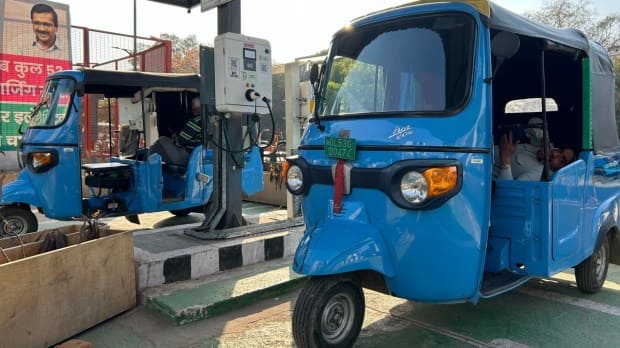
She adds, “However, I’ve started to realise that EVs should be a choice for those who already own a conventional car, especially given the current limitations for long-distance travel in India
Further, North East Delhi, with the fewest charging stations, was in bad condition, and while the bigger stations were working fine, the smaller ones were much more difficult to locate.
The charging station manager at one of North East Delhi’s charging stations said that they do raise complaints and have people visit to repair the charging points from time to time. “Still, during the nighttime, there is a lot of movement around the area, and that’s when I think these damages happen,” said the charging station manager, who did not wish to be named.
Kundra said, “There’s no doubt there’s a lack of security when it comes to EV charging stations, but with Delhi EV Policy version 2.0 in progress, the government is trying to look at more robust mechanisms to solve these challenges.”
The proliferation of EV charging stations, particularly in residential areas and strategic sites such as malls, hospitals, and colleges, is creating a favourable climate for EV adoption. This infrastructural development, incentives, and policy initiatives are critical to Delhi’s shift to sustainable mobility. But land is a big issue in Delhi. Currently, the Delhi government is operating on a model where either public land can be given to build the charging infrastructure, or owner land can be leased. But, this lease adds to the cost of building a charging station.
Battery Swapping Stations
A battery swapping station (BSS) is a place where electric vehicle (EV) owners can exchange an empty battery with a fully charged one.
In Delhi, with and within charging stations, the government has also installed 232 battery swapping stations, as per the Switch Delhi website.
“So, the reason behind developing a battery-swapping model is to lower the cost of electric vehicles for consumers. Typically, 1/3rd of the cost of purchasing an electric vehicle is due to its battery. With these battery swapping stations, the government is encouraging people to buy electric vehicles without batteries and get the battery as a service through the swapping stations, and this is taking a good shape,” says Kundra.
A Zomato Delivery Executive who uses an EV 2-wheeler for deliveries shares his experience with using a battery-swapping facility. He says, “Overall, my experience has been positive. I don’t have to take the stress of charging my vehicle everyday. But, these batteries aren’t available everywhere. So, I ensure to change batteries if I know I am near a swapping station.”
Note: The reporter attempted to contact the NDMC spokesperson, but no response has been received so far. The article will be updated if responses are received.
A Broader Comparison
In comparison to Delhi, Mumbai’s approach to EV infrastructure includes rules for the installation of EV charging stations in all new properties, demonstrating the Brihanmumbai Municipal Corporation’s (BMC) stance to promote EV adoption. The city has formed a dedicated cell in conjunction with the World Resources Institute (WRI) India (a non-profit that works to move human society to live in ways that protect Earth’s environment and its capacity to provide for the needs and aspirations of current and future generations) to expedite electric mobility. The Maharashtra government’s goal is to decarbonise the transportation sector and transition the Brihanmumbai Electric Supply and Transport (BEST) fleet to electric vehicles.
In the Unstarred Question Number 477 in the Lok Sabha Interim Budget Session, Minister of State for Heavy Industries Krishan Pal Gurjar gave a detailed bifurcation of the state-wise EV charging stations. As per the same, Maharashtra currently has the most public EV charging stations, with 3,079 in operation.
To compare EV charging facilities across major Indian cities, Mumbai, Bangalore, Chennai, Kolkata, and Hyderabad are also making progress. Bangalore has 822 public EV charging stations, while Chennai has 111. Mumbai has 448, while Kolkata and Hyderabad have 57 and 183 public EV charging stations, respectively.
With this, Delhi has the highest number of EV charging stations in India (2452 points in 1919 places).
Commenting on the future of Delhi’s EV charging infrastructure development, Kundra says, “Delhi’s path to developing a healthy EV ecosystem is still in process, with notable accomplishments and areas for improvement. The steady expansion of charging infrastructure, combined with novel deployment methodologies, points to a hopeful future for the city’s EV goals. However, resolving user complaints and improving the charging experience are critical steps towards completely aligning reality with expectations and policy goals.”
